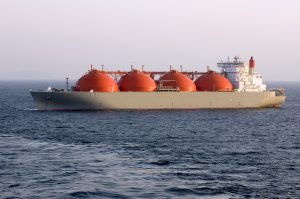 MVM Group member Hungarian Gas Trade Ltd. (MFGK) signed a package of agreements on June 5, 2020 in the framework of which MFGK’s Croatian subsidiary MFGK Croatia d.o.o. books capacities of up to 1 billion cubic meters per annum from January 1, 2021 for the period of nearly 7 years in Croatia’s Krk LNG regasification terminal (Krk LNG, Krk Terminal).
MVM Group member Hungarian Gas Trade Ltd. (MFGK) signed a package of agreements on June 5, 2020 in the framework of which MFGK’s Croatian subsidiary MFGK Croatia d.o.o. books capacities of up to 1 billion cubic meters per annum from January 1, 2021 for the period of nearly 7 years in Croatia’s Krk LNG regasification terminal (Krk LNG, Krk Terminal).
The capacity booking and the related LNG purchase are of historical significance, since it will be the first time natural gas from a dedicated LNG source will be delivered to Hungary. The deals are in line with MVM Group’s strategic goals to diversify natural gas supply sources and routes since the LNG procured will be exclusively sourced from Western European market players.
Secure and diversified natural gas supply is an economic, strategic and national security issue for Hungary. The implementation of the LNG regasification terminal on Krk Island of Croatia with its annual capacity of 2.6 cubic meters and its commissioning on January 1, 2021 are of particular interest for Hungary, since Krk LNG brings the opportunity of accessing the globalizing LNG markets to a geographical proximity. Hungarian involvement in Krk LNG is considered a priority by the Government, which is also explicitly reflected in the new National Energy Strategy.
Krk LNG fits into European Union’s (EU) endeavors of diversifying natural gas supply sources and routes, as the terminal is one of the endpoints of the North-South Gas Corridor, one of the priority projects of Central and South Eastern Europe energy connectivity (CESEC) initiative, furthermore it is also in line with EU strategy for liquefied natural gas and gas storage of 2016. The EU supported the implementation of the terminal with 101.4 million EUR funds from the Connecting Europe Facility (CEF).
Given Krk LNG’s strategic significance for both countries, Hungary and Croatia have negotiated for years about the conditions of Hungarian involvement in the terminal. In the meantime natural gas wholesale arm of MVM MFGK negotiated with numerous players of the world market about the economical procurement of natural gas in Krk LNG. In the light of global market developments LNG has become a competitive sourcing option in the region, further strengthening Hungary’s and MVM Group’s natural gas market positions. However, it remains a market and geographical reality that deliveries of Russian gas continue to be the backbone of energy security for Hungary and the region.
The Krk LNG package of agreements and the Hungarian involvement in the Krk Terminal is not only significant for the Hungarian and Croatian economies but it is such a milestone in the Hungarian-Croatian energy strategic cooperation that also raises their interstate cooperation to a new level. Furthermore, it can serve as an example for strategic cooperation within the EU and the region.
